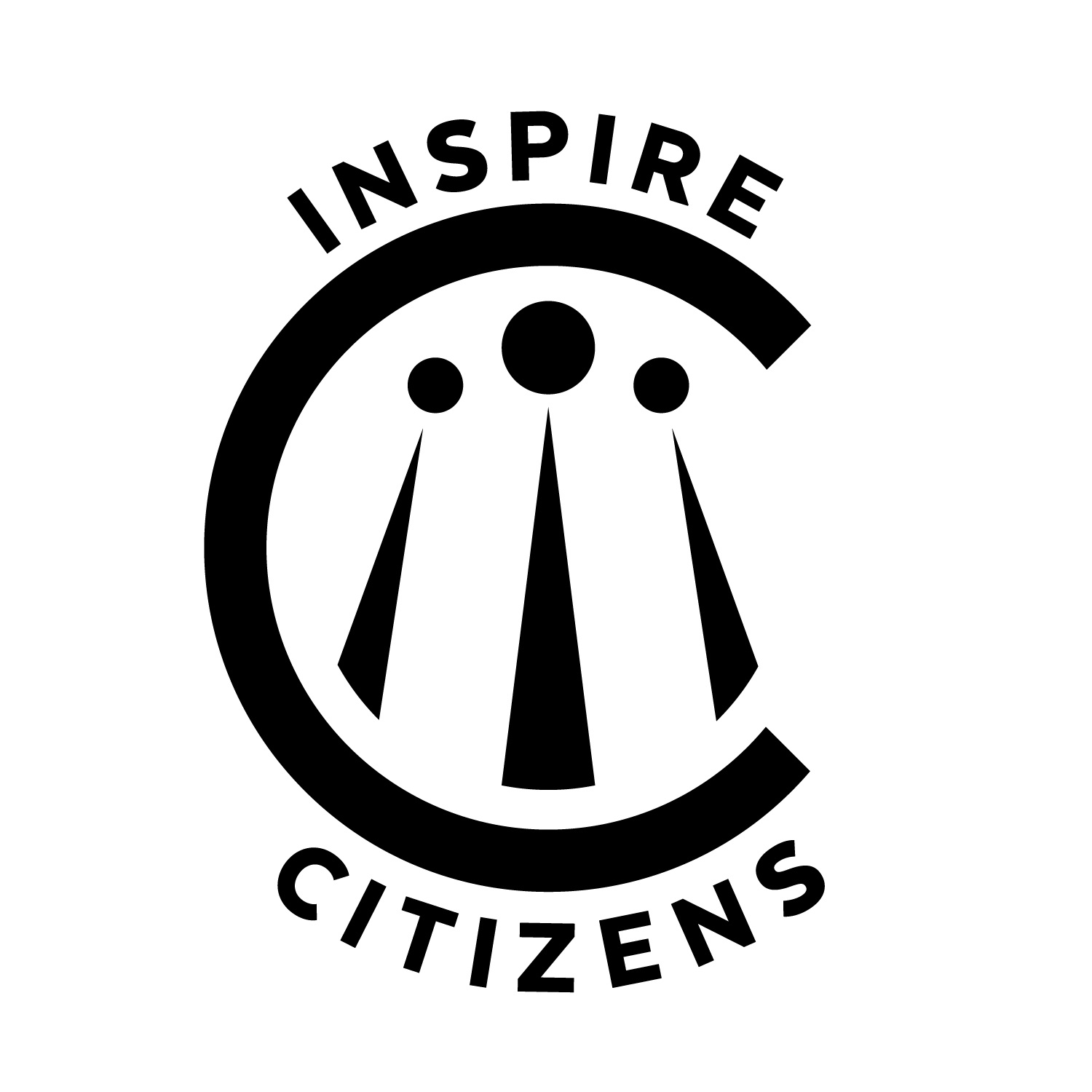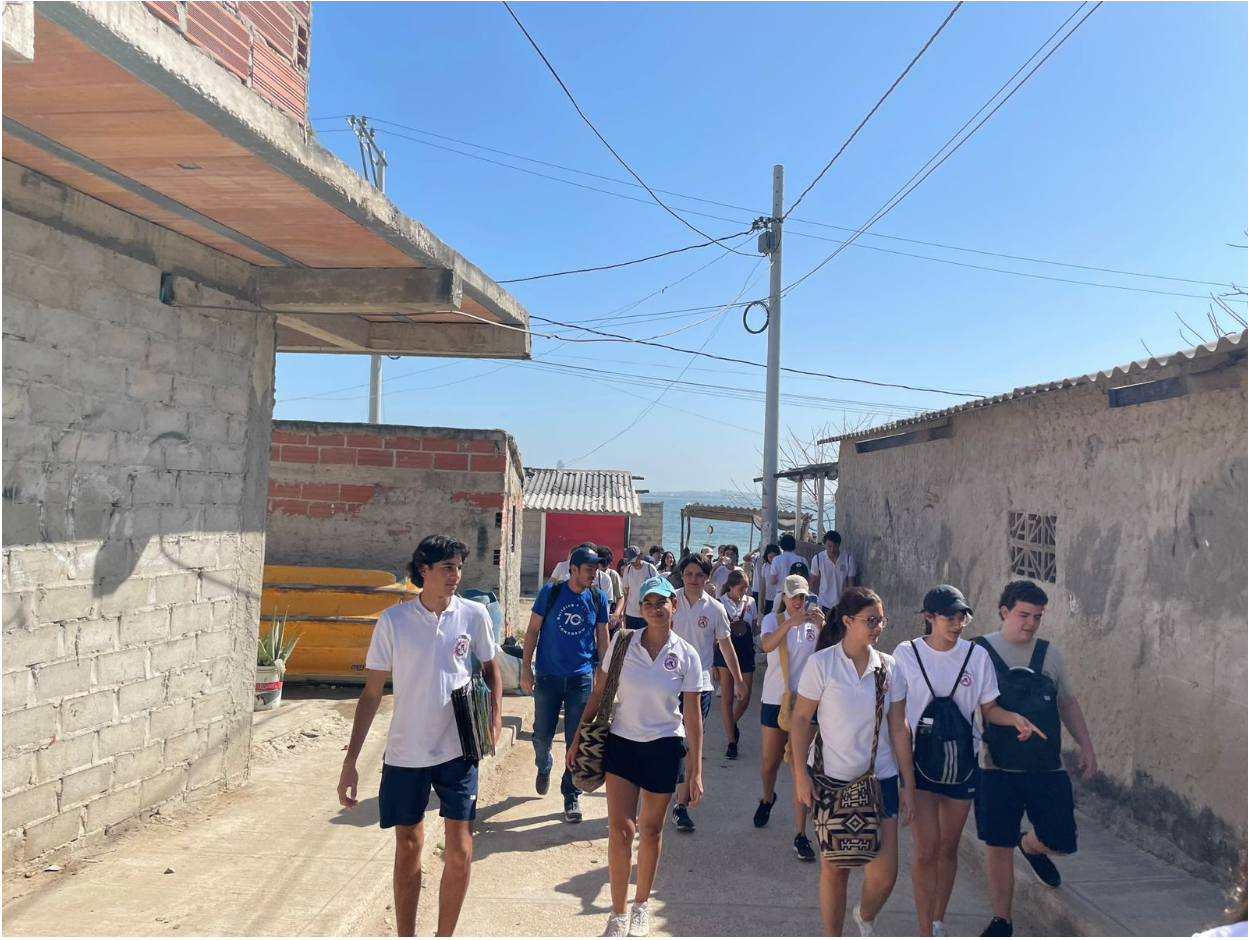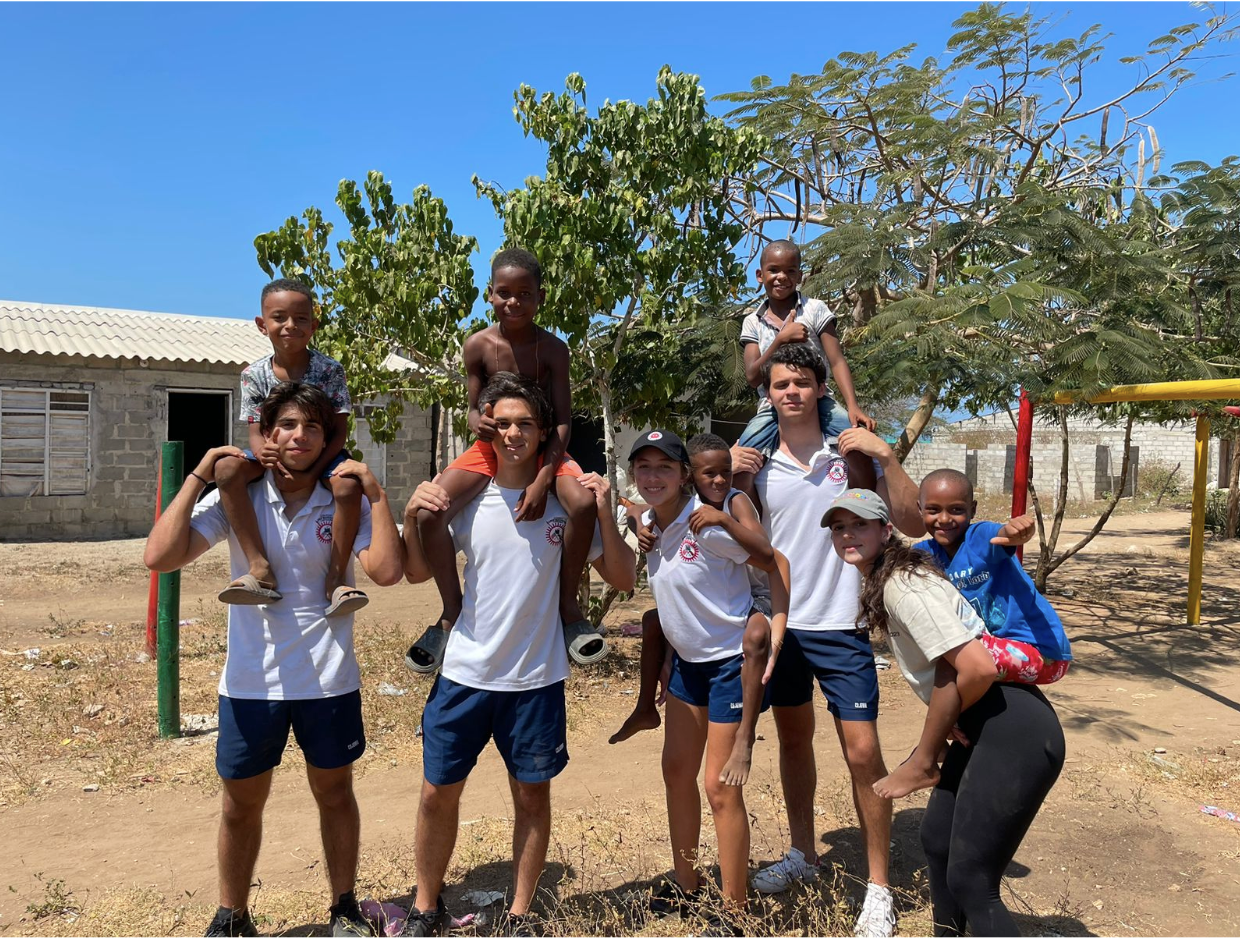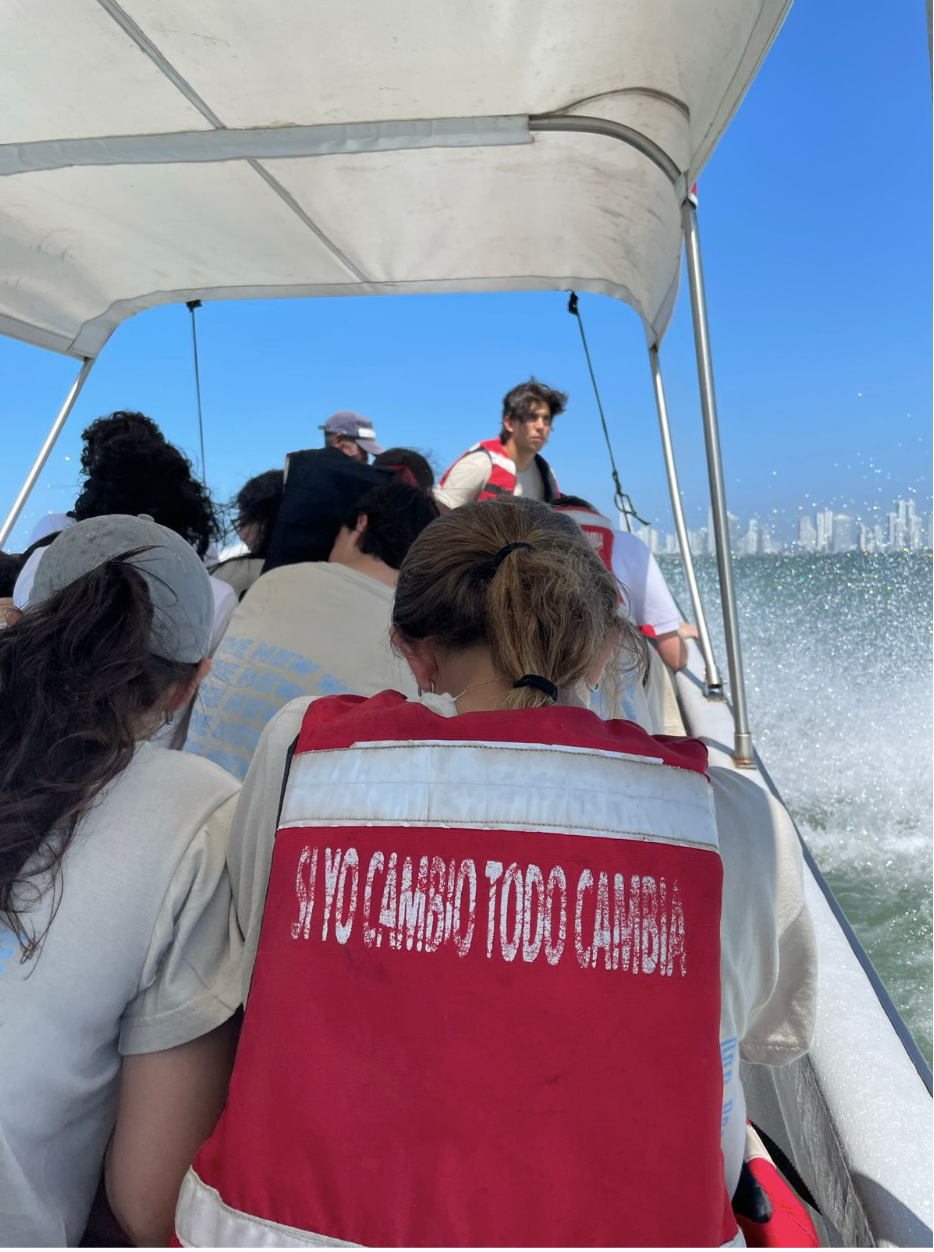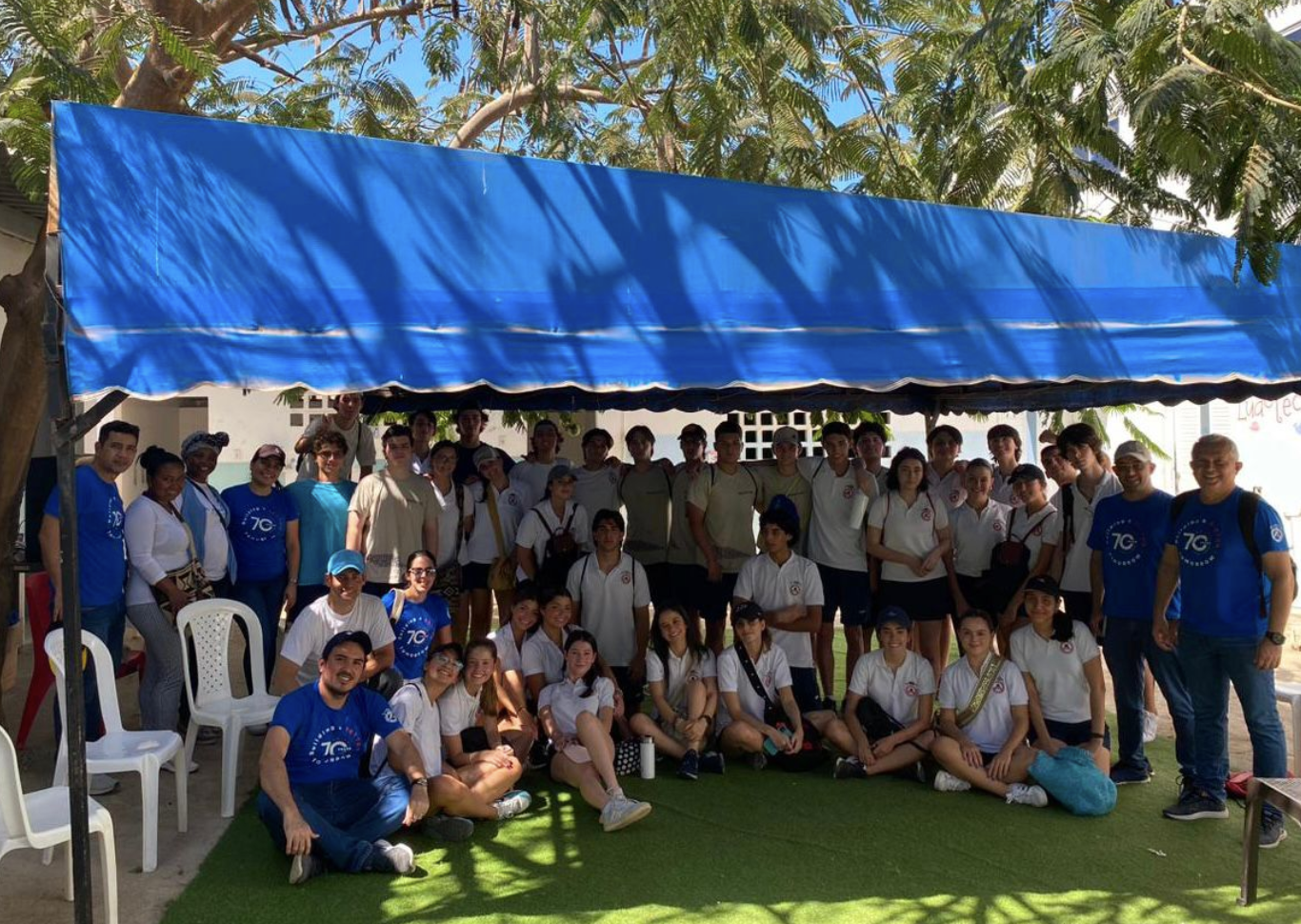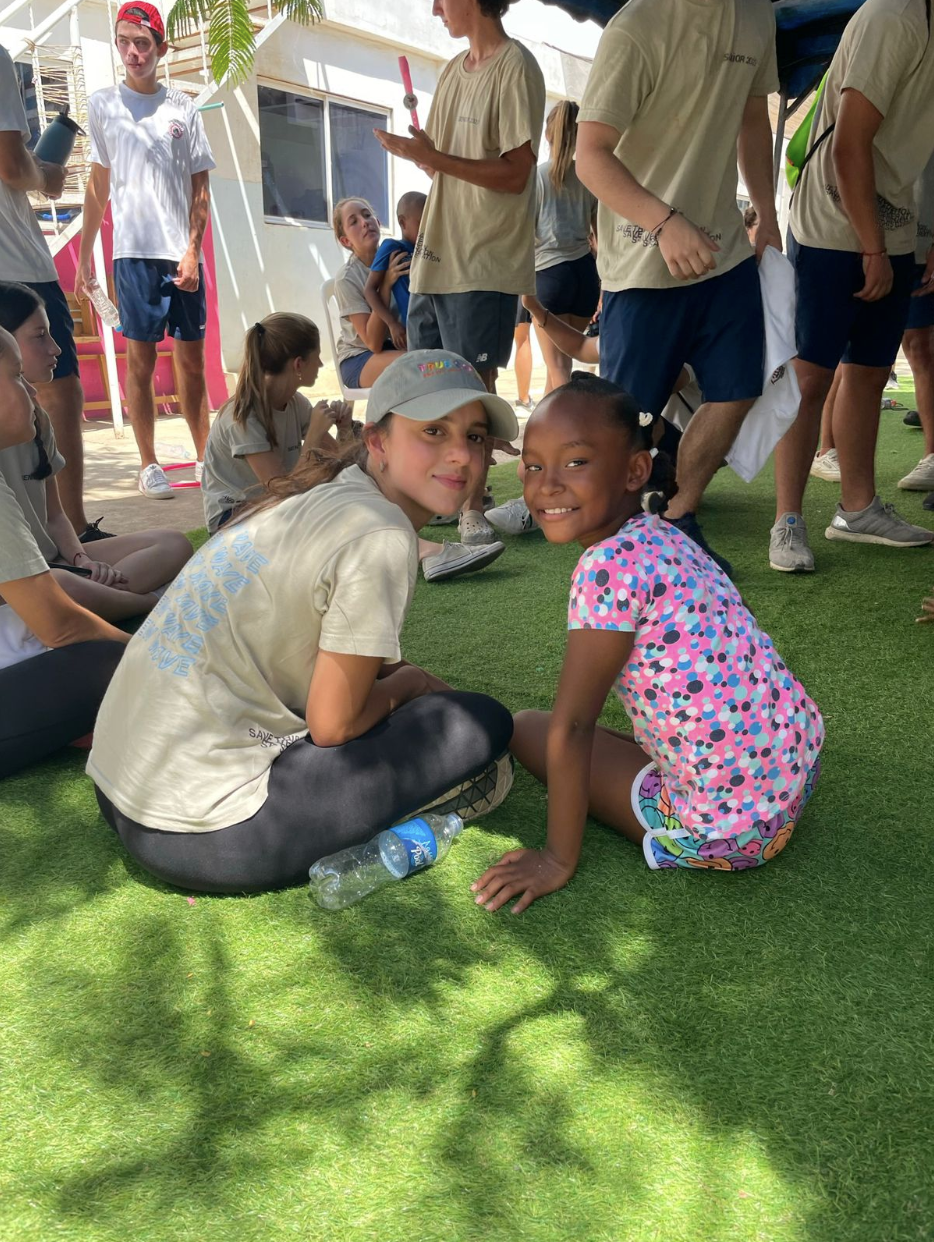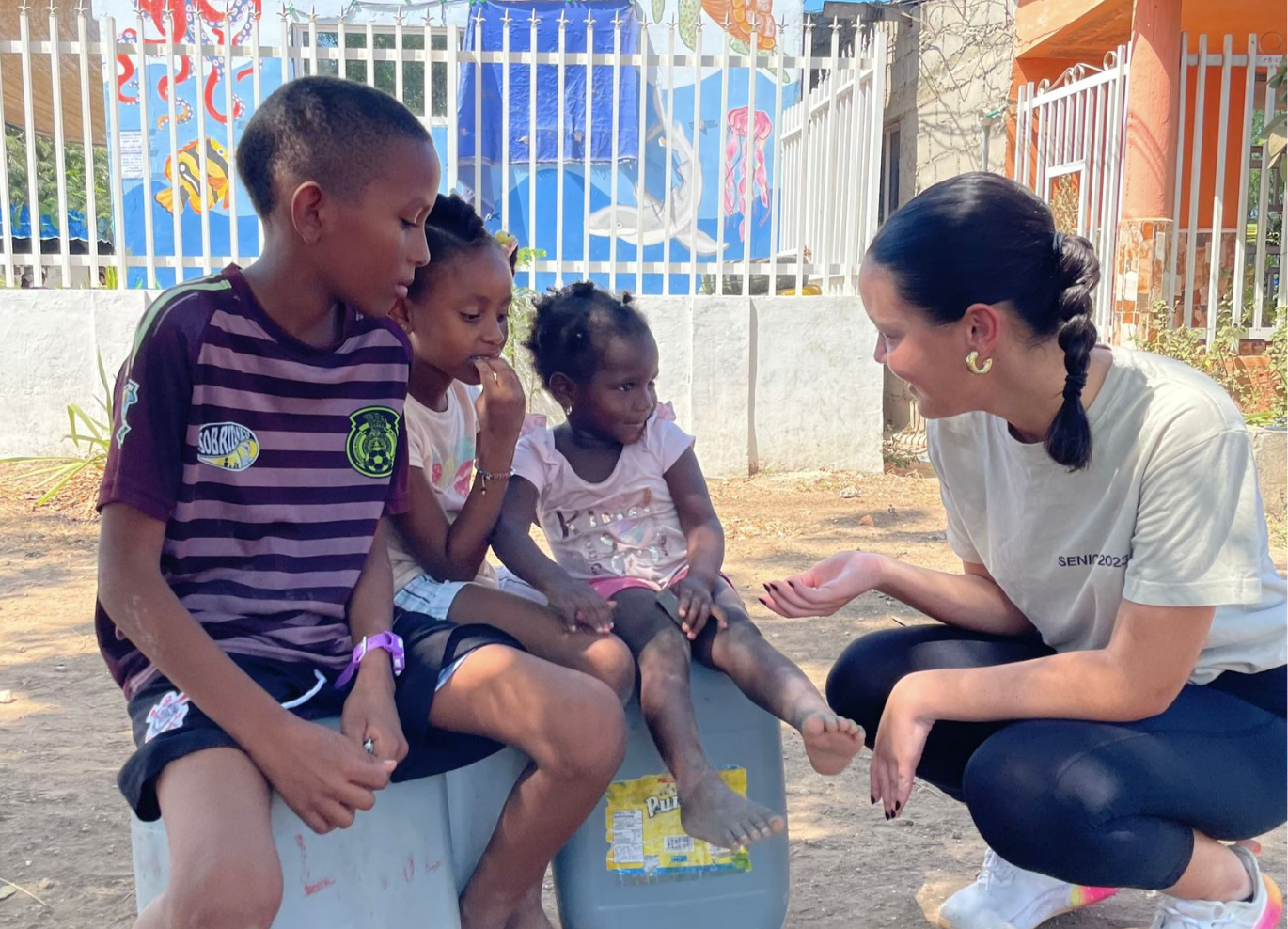Grade 12 Investigation leads to Long-Term Partnership
Grade 12 COJOWA students visiting an island community close to Cartagena that has become a long-term partner in relation to SDG #6 (Clean Water and Sanitation).
Grade 12 Social Studies and Spanish students at the Colegio Jorge Washington (COJOWA) in Cartagena, Colombia, have created a meaningful partnership that will span multiple years. From their service learning experience in class, they have seeded a reciprocal partnership founded on deep listening and service as action.
It started with standards in Spanish related to persuasive writing and standards in Social Studies rooted in analyzing social and environmental issues as well as understanding humanitarian and democratic organizations. These standards set the students on an open-ended exploration that has resulted in keen engagement and deep learning.
One grade 12 student explained the experience this way: “There is a vulnerable community on an island close to Cartagena where we had done some co-curricular service,” she said. “We planned a field trip there to learn more about the community and identify community needs. We worked in groups and everyone had a role in doing the interviews.”
First, the students interviewed leaders from an NGO that works closely with the local community, and then students fanned out in the community to interview a variety of people. After all of these conversations, it became clear to the students that the most pressing issue was access to clean water (SDG #6).
Students engaged in community interviews.
Once students reached this conclusion, they set to work ideating solutions, and soon the science and math teachers were also involved. For three months, the students conducted research and created proposals, and three solutions surfaced as the most viable and sustainable options:
Drill a well on the island.
Use a system of mirrors and solar energy to desalinate sea water into potable water.
Use solar panels to create heat to boil water for desalination.
“We think the second solution is the most viable because of the geography of the island and the effectiveness of the processes for using solar energy,” comments another grade 12 student.
With the help of the math and science teachers, students have developed prototypes and proposals complete with estimates of how much water is needed in the community and an assessment of the effectiveness of each proposed solution. They’re also conducting a cost analysis of each option and investigating funding to support the implementation of a sustainable solution.
Jessica Benitez, COJOWA’s Community Engagement Coordinator, explains that the local NGO will liaise with the community to discuss the solutions and facilitate community involvement.
“I’m so proud of what the students are doing,” she says. “With many service learning experiences, you work through the whole cycle in 8-10 weeks. This is a longer experience, and seeing the enthusiasm of the students and their commitment has been amazing. The teachers are also very involved and want to continue with this partnership.”
As these seniors graduate, they will pass their project to the incoming senior class, so their prototypes will be carried forward next year into community dialogue and then implementation. The next class will secure funding and put the most viable plan into action, which could result in clean water for the local community by the end of 2024.
“It’s been very eye-opening,” says one student of this learning experience. “We got to know the community and also see how we can use our education to make real change.”
Another student says: “This learning has been so real. We have had to use so many equations to develop prototypes and applying our knowledge to help the community has been so good. It’s really been an exchange because they have helped us with our education. Working like this has made learning more real for us.”
Below: more photos of a grade 12 visit to a nearby island community that has sparked a multi-year service learning experience.
